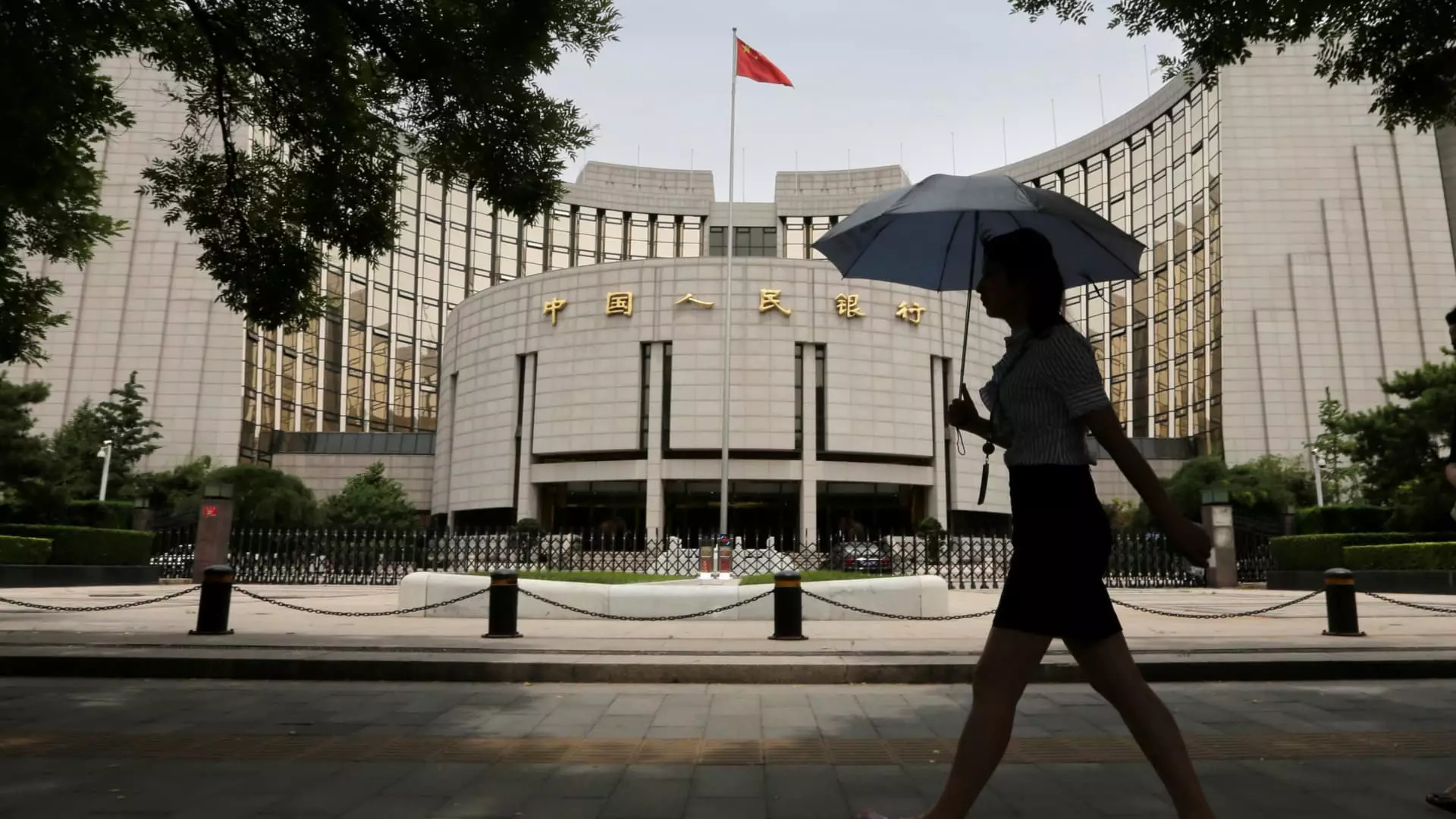The Impacts of U.S. Monetary Policy on Chinese Markets: Anticipation and Caution

As the Federal Reserve approaches what many analysts believe is a pivotal moment in its monetary policy, the implications extend far beyond U.S. borders. The anticipation of interest rate cuts has sparked conversations about how this may influence global markets—particularly those in China. Economists are beginning to assess how this potential policy change may provide the leeway needed for the People’s Bank of China to act, possibly rejuvenating its own economy and markets in the process. In light of this, it becomes crucial to examine the broader impacts on the Chinese stock market and whether the expected easing in U.S. monetary policy can catalyze significant growth.
The Fed’s policies have often set the tone for global monetary environments. A retreating stance on interest rates typically suggests a looser financial environment, encouraging higher borrowing and investment. This, in concert with reduced rates in China, could lead to heightened interest from investors in Chinese markets, which have previously lagged behind their American counterparts.
According to HSBC analysts, there exists an optimistic sentiment surrounding the possibility that easing U.S. monetary policies could ignite a transformation in the Chinese stock market. They forecast a potential shift favoring growth sectors, particularly in areas such as semiconductors and consumer electronics, where robust earnings have materialized in the first half of 2024. However, while these projections sound promising, the skeptics underscore that growth is heavily contingent on actual earnings performance. The expectation is not merely for the stock market to climb but for fundamentals to shift favorably—where growth stocks command higher price-to-earnings ratios compared to their value counterparts.
The correlation between interest rates and stock market performance is complex. Currently, many institutional investors have shown a preference for U.S. Treasurys due to elevated rates, which have rendered American securities appealing relative to Chinese equities. This trend is concerning for the Chinese market, especially as high-profile tech stocks, like Nvidia, have dramatically outperformed, drawing attention and capital away from China.
However, merely easing interest rates may not suffice for a robust revival of the Chinese equity markets. Laura Wang, Morgan Stanley’s chief China strategist, posits that the fundamentals of Chinese businesses and the overarching macroeconomic climate remain pivotal. In fact, stock valuations in China witnessed a disconnection from U.S. Treasury yields in 2024, raising alarms among investors.
Historically, Chinese equities have been characterized as attractively priced at a valuation stance, yet their growth has been stunted by the lack of a solid catalyst to spur significant upward movement. The pervasive issue of deflation remains a serious concern. In August of the current year, the core consumer price index registered a mere 0.3% growth since the previous year—indicative of an economy struggling to stimulate consumer spending and business investments.
A notable comment from Yi Gang, former governor of the People’s Bank of China, underlined the urgency to tackle deflationary pressures. Wang believes that “it’s more than just real estate,” highlighting a deeper-seated crisis of confidence that plagues consumer spending. Ultimately, even if the government reduces interest rates, the resultant benefits may flounder if households remain reluctant to invest that extra capital into the economy.
The hesitance among businesses to invest also warrants scrutiny. Recent reports indicate a decline in capital expenditures, signifying that firms are treading carefully rather than confident about future growth trajectories. While certain sectors showed promising results, the overall narrative reflects a cautious approach, with a decline of 4% in capital expenditure seen in the first half of the year—the slowest growth pace since 2017.
UBS forecasts a slight uptick in earnings per share for MSCI China this year, projecting a 7% growth, yet this remains overshadowed by lingering concerns regarding broader economic stability. Despite Beijing’s strategies, including the issuance of ultra-long bonds, a conservative fiscal approach persists, which may limit immediate impactful outcomes.
Navigating the path forward for Chinese equities in the wake of potential U.S. interest rate cuts calls for a balanced perspective. HSBC’s analysis suggests that the anticipated easing may yield a robust return for the Wind All-A index and the Hang Seng China Enterprises Index in the absence of a U.S. recession.
As investors mull over possible opportunities created by lower borrowing costs, identification of the right stocks—those with high revenue growth potential and reasonable debt profiles—becomes crucial. Notable firms like Muyuan Foods and China Southern Airlines may attract attention, yet comprehensive analysis is essential to establish long-term investment confidence.
While signs indicate that U.S. monetary easing could provide a much-needed boost to Chinese stock markets, a cautious view is necessary. The intertwining factors of business fundamentals, macroeconomic pressures, and investor sentiment all play critical roles in shaping the market’s future trajectory.





